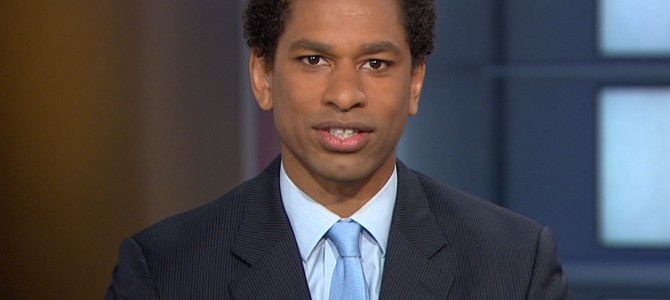
One of the most troubling aspects of modern racial discourse is how it often, if not usually, rests upon an unequivocal and unassailable assumption, namely that “society” makes everyone, or nearly everyone, racist. The presumption is not that most of us are racist in the way that a Klansman, or a diehard segregationist, is racist; such bigotry would be easily provable by examining the actions and the stated intentions of a person or a group of people. Nor is the debate given to the idea that people simply believe in genuine racial bigotry but is holding it back for one reason or another. Today’s discussions on race are more often than not informed by the notion that racism is a deep-seated, internal, subconscious set of values within the lion’s share of the populace, fashioned by “culture” or “society,” undetectable in superficial appearances but still omnipresent: this racism is insidious, surreptitious, unconscious and, most importantly, ineradicable without a great deal of dramatic, penetrating, soul-searching mental and emotional labor.
I do not mean to speak badly of the good intentions of those who espouse this latter-day theory of racism and who sincerely wish to solve a set of problems they believe are both real and incredibly urgent; nor am I to suggest that racism is not a real and dangerous thing that still exists in society, for it plainly is. Nevertheless, I am often struck by how foregone are so many discussions that revolve around racism and racial matters, and how these discussions by their nature demand that a single thing—many if not all people are racist, unconsciously or subconsciously—be acknowledged before they can proceed. Talking about racism demands more often than not an orthodoxy that is startling in its fervency. In the great American courtroom drama 12 Angry Men, Henry Fonda’s Juror #8 remarks on the tribunal of which he is a part: “Everybody sounded so positive…I began to get a peculiar feeling about this trial. I mean, nothing is that positive.” He was eminently right, and his suspicion was entirely correct; it is this kind of skepticism that has grown in me the more I view witness the conventional dogma of the doctrine of widespread “unconscious” racism that today is so prevalent.
The most frequent encounter one has with the “everyone is racist” or “most people are racist” tenet is the one that argues that our “culture” or our “society” has conditioned us to be racist; to use one of the more widespread examples, for instance, it is held that popular perceptions and depictions of black men have created in all of us the tendency to suspect all black men to be criminals, and in many cases, the theory goes, we are not even aware of this tendency, lodged so firmly and deeply in our minds as it is. It is true that the proponents of this theory cannot clearly prove that you contain this invidious judgment within your psyche, but then again, and most importantly, you cannot disprove it. Ideally, the burden of proof would be upon the accuser, as is the case in any competent judicial system; but in instances like these the burden of proof is not even on the accused, because there is no proof to be had—there is only an accusation with which one cannot argue, because one is not even aware of one’s deepest thoughts.
The notion that “society” makes people racist generally comes up in some form or another every time a discussion of racism arises. After the shooting of Trayvon Martin in Florida, there was a widespread agreement that George Zimmerman had profiled the young man simply because he was black; had Martin been white, he would not have attracted Zimmerman’s ire or his eventual, fatal, wrath. There is evidence that Zimmerman was a hyper-zealous quasi-vigilante neighborhood watchman that took his volunteer position far too seriously (the killing of Martin being the clearest indicator), yet Zimmerman’s being racist is another thing altogether, and a much more complicated thing. It was pointed out that he participated in a mentorship program of some kind in his neighborhood, and that his mentees were two young black men, a devastating blow against the notion that he maintained hateful prejudice against blacks. But it is not actions, or even conscious thoughts, by which one can determine who is and who is not a racist these days; as Touré posited a short while after the shooting:
Humans are filled with contradictions, so Zimmerman could have gotten to know those neighborhood boys and embraced their humanity but not extend the expectation of humanity to someone he didn’t know. When Zimmerman went to mentor those children he was one subself, and when he spotted Trayvon a different subself kicked in, powered by a constellation of thoughts that aligned black men with criminality.
Zimmerman was taught by society that young black men are on drugs and criminals and that fallacy sits in his subconscious alongside how to ride a bike. If he didn’t live in a world where people are constantly acting on that fallacy then he wouldn’t have that in his subconscious. Racism is not inherent like the ability to learn how to read. It’s learned. And we are teaching it well.
“Humans are filled with contradictions” may just be the understatement of the young century, but its chief function here is to allow the author to gloss over a serious flaw in his argument, lapsing as it does into perplexing academic jargon such as “subself.” In any event, Touré is correct that racism is not an inherent thing but one of learned behavior; yet his psychological profile of Zimmerman, and his attendant indictment of “society,” is altogether baffling. Society being not a genuine whole but a collection of individuals and of things, we must ask: by whom or what was Zimmerman “taught” to be racist towards black people? Where did he “learn” it? From which movies, books, TV shows, or other mass media did he learn these things—and which ones specifically, not generally? Around whom did, or does, he spend his time that he developed racism “in his subconscious,” and in what way did these people “[act] on the fallacy” of racist thoughts that thus engendered his unconscious racist beliefs? How, in short, did Zimmerman “learn” to become a racist? And how did it specifically occur, from what sources, from which actors, from what media and what humans and what specific influences?
These are profoundly un-rhetorical questions. I am not advocating for a disingenuously pedantic approach to determining whether or not Zimmerman is racist—but it seems abundantly clear that charging Zimmerman with racism must rest upon a genuinely pedantic set of evidence, if we hope to garner any real solutions from it (assuming it is an accurate accusation). Generalities about “society” and “people” can be useful and even arguably correct, but they simply will not suffice here, and they should not suffice, for these are vital questions that may give way to vital answers. We are not, after all, witnessing a highly specific charge of racism against a man based upon highly specific factors, but a highly specific charge of racism based upon highly general factors.
Is racism innate?
And yet modern racial rhetoric does not demand this type of specificity, because “society” teaches us to be racist, and that should suffice. I would not have used Touré’s example if it were not so emblematic of some of the core shibboleths of today’s parley on racism, though it must be conceded that Touré may be right—we must not be positive, I mean to say, that he is wrong. And yet his generalizations are disquieting, for they invite not an honest examination of how such a terrible set of circumstances came about, but a prostrate acceptance that some things simply are as some people say they are. “Trust me,” the rationale goes—or more explicitly, trust these vague abstractions as ironclad truth.
It is true that there have been a great number of scientific studies that seem to “prove” that most human beings hold racist sentiments even when they explicitly deny they do—a fact which many have pointed out, including Touré; in his piece, he claims that the effect of negative media portrayal of blacks “makes being non-racist almost like mentally swimming upstream.” Human beings, of course, are perfectly capable of swimming upstream—and in any event it remains that we have no indication that such a study was ever performed upon George Zimmerman, or that—or how—he was poisoned by “society” to commit the terrible act that cost a young man his life, or how the rest of us are poisoned in such racist ways, either.
I do not mean to suggest that scientific studies such as the ones referenced above are not useful and informative, or that we should abandon the kind of empirical extrapolations that are generally necessary to any field of sociological study; only that it is very puzzling, and seems terribly unscientific, to claim that a scientific paper or a questionnaire could tell us the true nature of a person whom we’ve never met, or that even a hundred of these studies could possibly speak for someone you’ve never encountered before. “You’re probably more racist and sexist than you think,” read a recent headline, citing a number of these types of studies as evidence. I think, therefore I am—unless I think I am not a bigot, in which case probably therefore I am not.
A deep and pervasive kind of pseudo-religious certitude is often on display when one encounters a person who believes in the societal inculcation of bigotry, and this is frustrating, because religious faith and convictions of societal influences are two entirely different things that should demand two entirely different methods of inquiry and inspection. Writing in Salon last year after Paula Deen had admitted to using the word “nigger” in the past, Roxane Gay declared:
Everyone holds certain judgments about others and those judgments are often informed by race. We’re human. We’re flawed. Most people are simply at the mercy of centuries of cultural conditioning. The better among us try, to varying degrees of success, to overcome that cultural conditioning — or, as recent revelations about popular, butter-loving Food Network host Paula Deen suggest, we don’t.
“We’re human. We’re flawed.” This is, of course, a sentiment that pre-dates Salon by a few millennia, to be found infused throughout the Old Testament and its timeless pronouncements on the fallen state of man: from the first transgressions of Adam and Eve the human race has inherited the state of original sin, prone as it ever is towards evil and the habitual turning away from goodness and from God. It is again important to note that Gay may indeed be right about “cultural conditioning,” but the aloof certainty with which her beliefs are delivered regarding “most people” is striking, as is its fatalistic rhetoric: the human mind is “at the mercy” of things, unmoored from most of its rational capacities, capable only of “trying” to “overcome” the inexorable effect of events that occurred hundreds of years ago—and only then with “varying degrees of success.” It is perhaps the chief accomplishment of this curious philosophy that the mind is held to be subservient to itself, capable of meaningful change only with great and heroic strides of mental vigor, and even then the desired conclusion is in doubt. You have met the enemy, and it is your brain—and you are at its mercy.
“Mercy” is an appropriate expression to appropriate for the kind of absolution that is sought by members of the doctrine of extensive “unconscious” racism. It is not from any one person or even one group that the helpless and self-aware racist seeks his exoneration, but from a larger entity towards which we all must genuflect. This is most often manifested in the notion of “checking one’s privilege,” an act that shows contrition for a transgression of which you were almost certainly unaware. The “checking” of “privilege” is itself not constrained to racial matters—privilege is held to exist within a wide range of social or societal classifications. Nevertheless, “check your privilege” is most often uttered in the context of checking one’s racial privilege, and the “checking” one is recommended to undertake most often resembles the steps laid out by the Transformative Justice Law Project of Illinois:
1) Acknowledge that the privilege exists, 2) move away from immobilizing guilt, 3) understand that your privilege will not go away until the root systems that give you privilege are abolished, 4) be an ally to communities you are not a part of, 5) recognize how and why your privilege can destruct community empowerment, 6) use your privilege to benefit groups you are not a part of, 7) educate others with your privilege to check themselves, and 8) call people out and embrace being called out about privilege.
As must be restated, it is entirely possible that the Transformative Justice Law Project’s approach is correct—but then, one must admit that the flagellants of medieval Europe may have been correct, as well. What is on display here is less of a movement to improve society and correct injustices of the past, and more an attempt to instill a relentless brand of self-criticism and self-abasement in the general population, a kind of constant internal opprobrium—in short, the checking of one’s privilege is geared mainly towards creating a society-wide grandiose incrimination of one’s very being. The communist movements of the 20th century were built in part upon this kind of condemnation of the ego. Communism as a serious political philosophy collapsed before the century turned, of course—which is not to say that the modern philosophies of race and “privilege” will suffer a similar fate. Nevertheless, from a purely practical viewpoint, if one of the pillars of your movement is a kind of neo-communist program of self-degradation, it may be worth questioning whether or not your movement is heading in the right direction, or indeed if you are making any sense at all.
“I could be wrong,” Billy Joel once sang—about something very different than race, to be sure, but at least he was confident that he should perhaps not be so confident. I am firmly aware that I could be wrong about my conclusions regarding this vexing debate—my conclusions being that most people are not racist, that “unconscious” racism is wildly overstated and not endemic to the population, and that an overwhelming number of people are honestly good, both consciously and unconsciously, without the hodgepodge of bewildering racist cognitive baggage that, it is so often insisted, most if not all of us posses. Wrong I may be—yet nevertheless, it feels more correct than not, and it remains that the acolytes of “unconscious” racism are often simply unable to prove their accusations, instead opting for abstractions in the place of cogent, rigorous thought.
It is the mark of a strong mind that one is at least reasonably confident of one’s convictions, and prepared to defend them without a great deal of relativist equivocation and “this-is-just-my-opinion” nonsense. We should passionately advocate for and espouse that in which we believe, and my belief is that human beings simply are not as given to deleterious notions as many people claim they are. But I could be wrong. It is a willingness to be incorrect that should inform all parties of any rational debate—and it is worth hoping that, as far as the discourse of 21st-century racism goes, we will all be willing to consider that we may be entirely incorrect about the axioms to which many of us tightly cleave
Daniel Payne blogs at Trial of the Century. You can follow him on Twitter.








